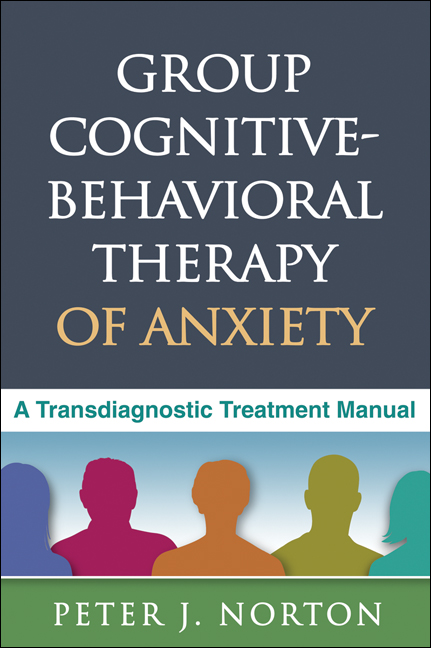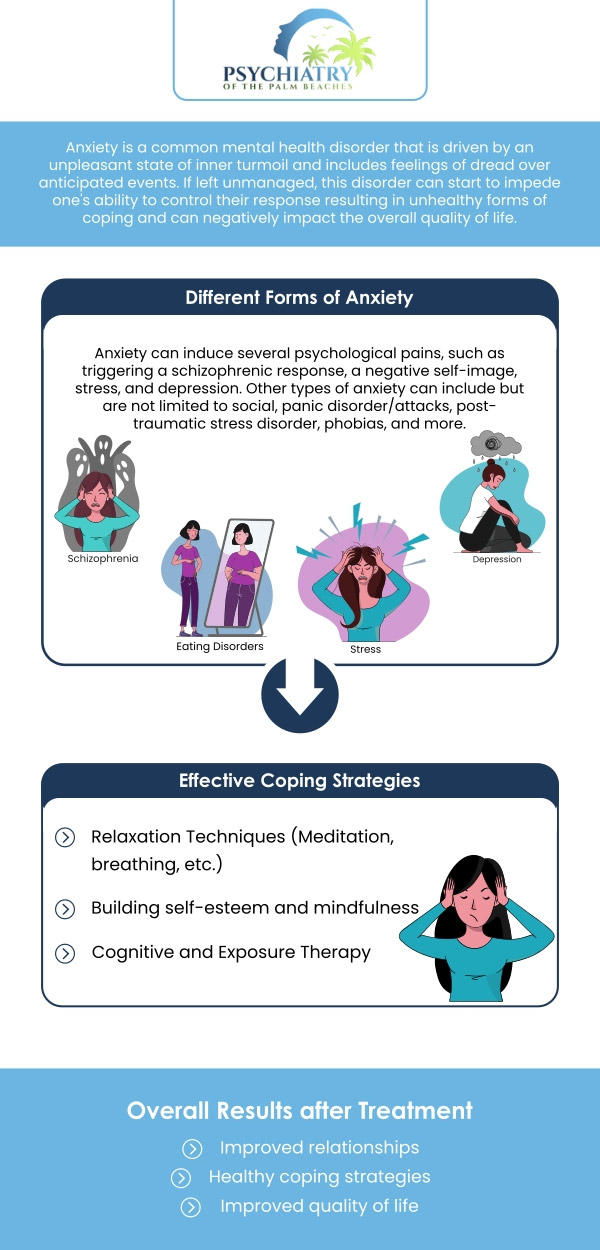Explore effective techniques through counselling for anxiety disorder programs
Explore effective techniques through counselling for anxiety disorder programs
Blog Article
Discovering Different Methods in Therapy for Anxiety Condition for Enduring Change
When dealing with stress and anxiety conditions, it's important to check out a range of counseling methods. Each technique supplies one-of-a-kind understandings and tools to aid you handle your signs and symptoms properly. You may find that combining methods can generate the most effective outcomes. Comprehending the nuances of these approaches is vital to cultivating long lasting modification. What if the appropriate combination could release a new level of psychological health for you?
Recognizing Stress And Anxiety Conditions: A Quick Summary
Anxiety conditions, which impact millions of people worldwide, can greatly impact everyday life. You might experience frustrating feelings of worry or fret that appear irrepressible. These feelings can bring about physical signs and symptoms like an auto racing heart, sweating, and even dizziness. Common sorts of anxiety conditions include generalized stress and anxiety condition, panic attack, and social anxiousness disorder. Each has unique signs, however they all share a tendency to interrupt your routine and relationships.Understanding the source of your stress and anxiety is important. It might originate from genes, mind chemistry, or life experiences. Identifying your triggers can help you handle your feedbacks better. It is essential to bear in mind that you're not alone in this battle. Many individuals face similar challenges, and seeking aid is a solid action toward sensation much better. By learning regarding anxiety problems, you're already on the course to understanding and handling your problem better.
Cognitive-Behavioral Treatment: Testing Unfavorable Thought Patterns
In Cognitive-Behavioral Treatment, you'll begin by determining the adverse idea activates that add to your stress and anxiety. Counseling services for anxiety. As soon as you identify these thoughts, you'll service changing them with even more favorable choices. Together, you'll construct efficient coping approaches to help manage your stress and anxiety in daily scenarios

Recognizing Unfavorable Thought Triggers
Acknowledging the particular triggers behind your negative thoughts can be essential in taking care of stress and anxiety when you run into minutes of distress. Begin by paying attention to scenarios that provoke feelings of worry or anxiety. Is it a congested room, a forthcoming deadline, or a conversation with certain individuals? Write down these circumstances in a journal. This will aid you determine patterns in your thinking. Notice physical sensations that accompany your unfavorable ideas, like a racing heart or rigidity in your chest. By identifying these triggers, you gain insight right into what's fueling your anxiousness. Comprehending these links is the primary step in testing those thoughts and ultimately gaining back control over your emotional responses.
Changing Thoughts With Positives
Challenging adverse thought patterns is an essential action in changing your attitude and reducing anxiousness. You may usually find yourself entraped in cycles of self-doubt or catastrophic thinking. Rather of allowing these ideas determine your sensations, practice replacing them with realistic options or positive affirmations. As an example, when you assume, "I can't handle this," move it to, "I can take care of obstacles one step at once." This easy modification can significantly impact your emotion. On a regular basis recognizing and responding to these unfavorable ideas aids develop a healthier internal dialogue. Bear in mind, it takes time and effort, however continually exercising this strategy can cause lasting modification, equipping you to face anxiety with renewed self-confidence and durability.
Structure Coping Techniques Together

Mindfulness and Acceptance-Based Approaches: Cultivating Present-Moment Understanding
As you navigate the complexities of anxiety, integrating mindfulness and acceptance-based methods can significantly enhance your ability to grow present-moment awareness. By concentrating on the here and now, you'll discover that you can observe your ideas and feelings without judgment. This method assists you recognize your stress and anxiety without really feeling overwhelmed by it.Engaging in mindfulness workouts, such as deep breathing, body scans, or assisted meditations, allows you to ground on your own in your present experience. Acceptance-based techniques encourage you to welcome your feelings instead than battle against them. When you accept your sensations, they shed their power over you.Incorporating these techniques right into your day-to-day regimen can transform how you react to anxiousness. You'll develop resilience and find out to navigate stressful situations with better simplicity. Inevitably, growing present-moment awareness lays the foundation for enduring change, encouraging you to lead a much more fulfilling life.
Direct Exposure Therapy: Challenging Concerns Gradually
Exposure treatment helps you face more your concerns in a steady way, making it much less overwhelming. You'll learn strategies to face anxiety-provoking circumstances detailed, while also constructing coping techniques to handle your reactions (Counseling services for anxiety). This technique empowers you to take control and minimize anxiousness in time
Steady Direct Exposure Techniques
When dealing with anxiousness, gradually facing your fears can be a powerful means to regain control. This method, known as gradual direct exposure, involves slowly subjecting on your own to the situations or things that cause your stress and anxiety. Start with much less intimidating situations and slowly function your means as much as even more tough ones. As an example, if you're scared of public speaking, you may start by speaking in front of a mirror, then progress to sharing thoughts with a good friend, and eventually deal with a little group. Each action aids desensitize you to the anxiety, constructing your self-confidence with time. Bear in mind, it's necessary to pace yourself and celebrate small success as you relocate with this process, strengthening your ability to handle stress and anxiety successfully.
Structure Coping Techniques
Building effective coping techniques is vital for handling anxiety, especially as you face your concerns progressively. One effective method is direct exposure treatment, where you start by encountering your worries in a regulated manner. Begin with much less daunting situations and gradually function your way approximately more difficult scenarios. This progressive exposure helps desensitize you to anxiousness triggers, making them much less overwhelming.Incorporate leisure strategies, such as deep breathing or mindfulness, to soothe your mind during exposure. Track your progress, commemorating small victories along the way to improve your confidence. Bear in mind, it's alright to take your time; the goal isn't perfection but consistent enhancement. By constructing these approaches, you'll encourage yourself to browse stress and anxiety and embrace life extra totally.
Psychodynamic Therapy: Revealing Source of Anxiety
Psychodynamic treatment checks out the unconscious mind, exposing the origin of your anxiousness. By analyzing your ideas, feelings, and previous experiences, this strategy aids you reveal underlying conflicts and unsolved issues that may add to your current anxiousness. You'll deal with a specialist to explore childhood experiences, partnerships, and psychological patterns that form your responses today.As you get understanding into these deeper layers of your subconscious, you'll begin to recognize exactly how previous occasions influence your present behavior. This understanding can cause catharsis, permitting you to refine feelings you might have suppressed.Through the restorative partnership, you can additionally identify protection devices that may have developed gradually, offering a more clear course to transform. Inevitably, psychodynamic therapy equips you with the tools to resolve your anxiousness at its core, promoting enduring change in your psychological health.
All Natural and integrative Strategies: Combining Techniques for Greater Efficacy
Integrating numerous healing strategies can boost your trip towards taking care of anxiety better (Counseling services for anxiety). By integrating aspects from cognitive-behavioral therapy, mindfulness techniques, and all natural techniques, you can produce an individualized approach that resolves your special requirements. As an example, you might use cognitive-behavioral methods to challenge negative thought patterns while including mindfulness workouts to ground yourself in the here and now moment.Additionally, discovering holistic techniques such as yoga or see this site meditation can advertise leisure and minimize stress and anxiety signs. This mix permits you to establish greater self-awareness and resilience.Experimenting with these varied methods can aid you find what reverberates most with you. Keep in mind, it's regarding finding a harmony that functions, as opposed to sticking to a solitary approach. This integrative method not only offers prompt relief yet also cultivates long-lasting skills for handling anxiousness, empowering you to reclaim control over your life

The Duty of Support Solutions: Structure Resilience With Link
While it might appear that handling anxiousness is a solitary trip, having a strong support group can play a vital duty in your resilience. Bordering on your own with compassionate close friends, family, or assistance groups produces a secure space where you can openly share your experiences and feelings. When you get in touch with others, you advise yourself that you're not alone in this struggle.These connections use motivation and can provide functional coping approaches that have benefited others. It's likewise a possibility to obtain point of view; good friends can aid you see scenarios in different ways, reducing feelings of isolation.Moreover, emotional support fosters a sense of belonging, which can greatly reduce stress and anxiety signs and symptoms. By leaning on your assistance system, you can develop durability and deal with obstacles a lot more successfully. Keep in mind, connecting for help is a sign of toughness, and it can make all the distinction in your trip toward managing anxiety.
Often Asked Inquiries

What Are the Usual Signs And Symptoms of Anxiety Problems?
You may experience restlessness, exhaustion, difficulty concentrating, irritation, muscular tissue tension, and rest disruptions. Physical symptoms can include fast heartbeat, sweating, and shivering. Identifying these signs early can assist you look for ideal support and therapy.
How Much Time Does Treatment Commonly Last for Anxiousness Problems?
Treatment for stress and anxiety disorders generally lasts anywhere from a few weeks to a number of months. It actually depends on your individual needs, progress, use this link and the methods your therapist utilizes to aid you handle your anxiousness properly.
Can Drug Be Made Use Of Alongside Therapy for Stress and anxiety?
Yes, medicine can absolutely be utilized together with therapy for anxiousness. Incorporating both techniques commonly boosts therapy efficiency, aiding you take care of signs while checking out underlying problems through counseling. Always consult your doctor for customized guidance.
Are There Self-Help Strategies for Managing Anxiety?
Yes, there are numerous self-help methods for handling stress and anxiety. You can exercise mindfulness, involve in normal exercise, keep a well balanced diet, develop a regular, and utilize deep breathing techniques to help in reducing stress and anxiety signs and symptoms properly.
How Do I Know if I Required Expert Help for Anxiousness?
You must think about looking for specialist assistance for anxiety if it interferes with life, causes substantial distress, or if self-help methods aren't working. Trust your impulses; connecting can lead to better coping skills and assistance. Common kinds of anxiousness disorders consist of generalised anxiety problem, panic disorder, and social stress and anxiety disorder. When you experience moments of distress, identifying the particular triggers behind your adverse thoughts can be crucial in handling anxiousness. Replacing adverse thoughts is just the beginning of taking care of anxiety successfully. By examining your ideas, feelings, and previous experiences, this approach assists you reveal underlying problems and unsettled issues that may add to your existing anxiety. It's likewise an opportunity to acquire point of view; friends can assist you see circumstances in different ways, minimizing sensations of isolation.Moreover, emotional support promotes a sense of belonging, which can considerably reduce anxiousness signs and symptoms.
Report this page